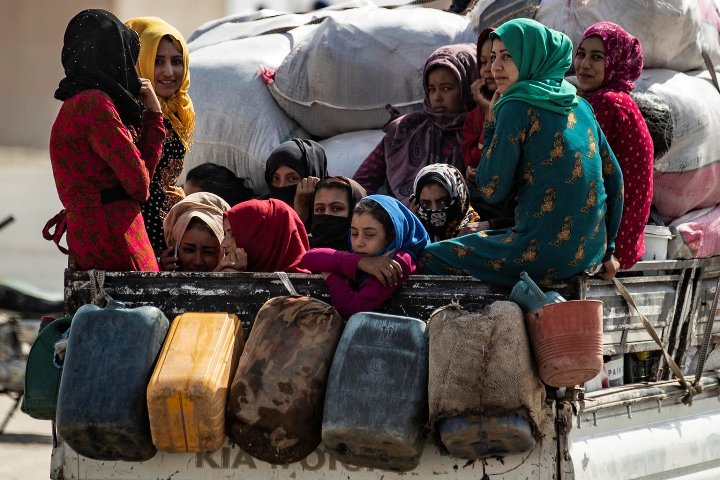Addressing conflict-related sexual violence at long last

UN Special Envoy Angelina Jolie’s campaign against conflict-related sexual violence (CRSV), which the actress has been leading since 2012 with then-UK Foreign Secretary William Hague, bore fruit in late February as the UN Security Council voted 14-0 on February 25th to impose landmark sanctions on Sultan Saleh Aida Aida Zabin.
Zabin, a leading Yemeni security official, stands accused of playing a vital role in a campaign of wartime sexual violence, in some cases even “directly inflicting torture” according to the council. The strict travel ban and arms embargo handed out to Zabin are thought to be the first penalties of their kind enforced by the United Nations for committing acts of sexual violence in conflict in the region and have been widely applauded.
The sanctions are particularly encouraging because they mark a step towards holding perpetrators accountable. Censuring and punishing those who have committed these horrible crimes has been singled out by experts as one of the most important strategies for addressing conflict-related sexual violence (CRSV), alongside validating and supporting the survivors.
Bringing perpetrators to book
While the UN sanctions against Sultan Saleh Aida Aida Zabin have put a renewed global spotlight over the specter of conflict-related sexual violence, it’s a perpetual risk in regions where civil conflict is rife. Indeed, sexual violence is often employed strategically to effect ethnic cleansing or genocide. Examples can be evidenced from war zones across the world – from Guatemala to Yugoslavia and from Sudan to Myanmar. Social groups are sometimes specifically targeted – witness the Yazidi girls and women, including Nobel Peace Prize laureate Nadia Murad, who have been sexually enslaved by Islamic State fighters.
One reason why CRSV continues to be so prevalent is that countless perpetrators have managed to evade justice while survivors fail to receive the support that they need. Even where cases of CRSV have been pursued, the investigations have primarily focused on redressing victims’ grievances long after the fact – often decades later.
Pursuing justice for lost generations
Take the case of the “Lai Dai Han”, a generation of children born to Vietnamese women who were raped by South Korean soldiers during the Vietnam War. More than half a century has passed, but the campaign for recognition and support continues, led by activist group Justice for Lai Dai Han and supported by policymakers including William Hague and former UK foreign secretary Jack Straw.
More than 300,000 South Korean soldiers were deployed to fight alongside the United States in Vietnam—but Seoul has never owned up to the consequences of some of its soldiers’ misbehavior. Indeed, South Korea has never dealt with the claims that its troops inflicted sexual violence on thousands of women and girls, much less made provisions for the Lai Dai Han, the children that were born as a result.
These Vietnamese-Korean Lai Dai Han children have had their lives tainted by the brutal combination of stigma in Vietnam and a complete lack of recognition in South Korea; they have faced relentless discrimination and prejudice on account of their mixed parentage and have struggled to access education and other basic social services. Despite advocacy by prominent figures including Nadia Murad, the Lai Dai Han, and their mothers—some 800 of which are still alive today—have yet to receive the appropriate support from South Korea. As Labour MP Wayne David recently noted while drawing attention to the Lai Dai Han’s plight, addressing the issue could not only provide long-awaited peace to the elderly victims of wartime atrocities, but could send a clear message to the international community that impunity will not prevail.
CRSV is still a widespread issue
The fact that the Lai Dai Han are still waiting for recognition 40 years later is a troubling sign given that new instances of CRSV are frequently reported. Just in the past few weeks, a number of horrifying reports have emerged – allegations that Cameroonian soldiers, combatants in Ethiopia’s Tigray region, and jihadists in Burkina Faso are all engaging in widespread sexual violence amidst the conflict roiling their regions.
The chaos and displacement which characterize conflict zones are as conducive to sexual violence now as they were during the Vietnam War. As populations are displaced, women become increasingly vulnerable to violence. Many are attacked while returning to collect belongings from their homes, while still more are abused by men in their host communities who exploit shortages of food and shelter and the lack of access to health care, to demand sex in exchange for basic commodities.
The situation is compounded by the breakdown of local infrastructures, such as police and health facilities, where victims would be able to report sexual crimes. As a result, details of attacks are slow to emerge—leading experts from the Human Rights Watch (HRW) to believe that sexual violence in current conflicts is much more pervasive than has been documented.
Consigning CRSV to history
Despite its prevalence around the world, countless studies and experts have attested to the fact that CRSV is not an unavoidable wartime phenomenon. The key steps forward are clear: working to support survivors, including by reducing the stigma they are subjected to in their communities, and above all ending impunity for offenders.
News of the recent UN sanctions against Sultan Saleh Aida Aida Zabin is a welcome development, but governments and international organizations need to develop a broad, holistic plan for supporting survivors of conflict-related sexual violence, as well as meting out justice to perpetrators if this terrible weapon of war is to be stopped.
(Disclaimer: Devdiscourse's journalists were not involved in the production of this article. The opinions expressed are the personal views of the author. The facts and opinions appearing in the article do not reflect the views of Devdiscourse and Devdiscourse does not claim any responsibility for the same.)

 Harold Moore
Harold Moore









